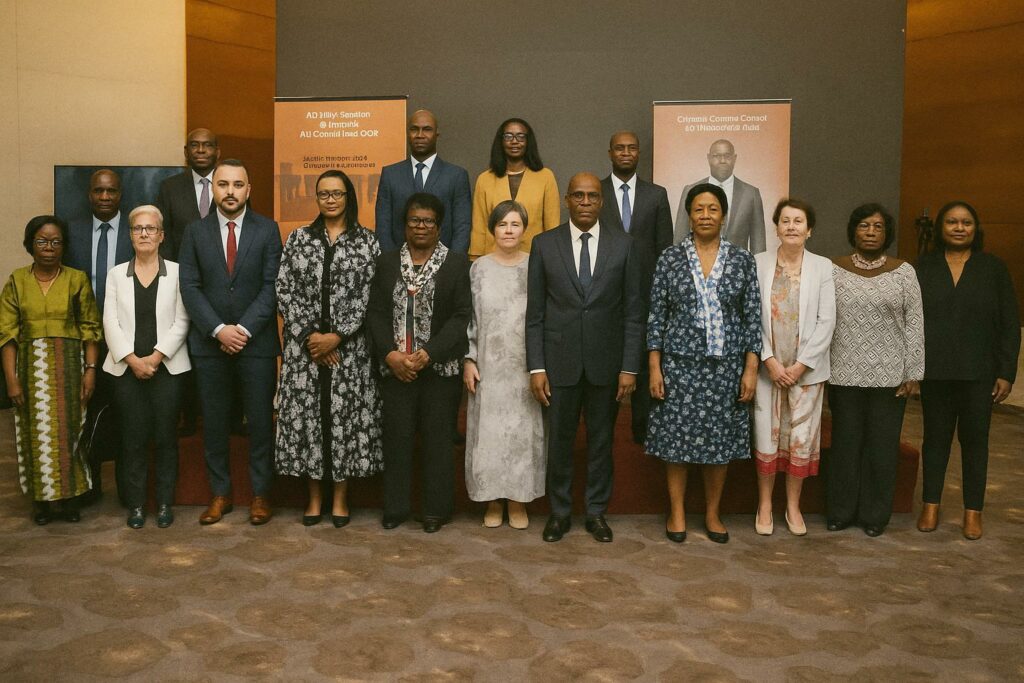A Six-Decade Partnership Enters a New Phase
Few bilateral relationships on the African continent can claim the longevity enjoyed by the European Union and the Republic of Congo. Dating back to the first Yaoundé Convention of 1963, the partnership has weathered ideological shifts, commodity cycles and global crises, yet has retained a remarkably steady institutional architecture. The meeting on 10 July 2025 between EU ambassador Anne Marchal and Finance Minister Christian Yoka offered a timely occasion to take stock of the acquis and calibrate priorities for the coming decade. Marchal, only recently accredited to Brazzaville, spoke of a “grand sweep” across ongoing programmes, underscoring the Union’s resolve to remain a privileged development ally.
Fiscal Dialogue Anchored in Pragmatism
For Minister Yoka, whose portfolio spans public finances, budgetary planning and state assets, the EU’s concessional envelopes are no mere windfall; they are levers for broader macro-fiscal consolidation. Since the adoption of the National Development Plan 2022-2026, Brazzaville has pursued a cautious debt-management policy while preserving capital expenditure on schools, hospitals and roads. EU budget-support tranches, structured around performance indicators agreed with the Treasury and the IMF, have helped stabilise the fiscal horizon without imposing excessive conditionality (IMF Article IV Report, 2024). Marchal publicly praised what she termed the “constancy” of working-level cooperation, a formulation that discreetly acknowledges the daily technocratic labour often overshadowed by summit diplomacy.
Global Gateway: From Concept to Concrete Projects
Launched in 2021, the EU’s Global Gateway is frequently portrayed as Brussels’ response to competing connectivity initiatives. In Congo-Brazzaville it is rapidly moving from brochure to bulldozer. Delegation officials confirm the upcoming signature of a financing package aimed at rehabilitating the Pointe-Noire–Brazzaville rail corridor, a 510-kilometre artery critical for regional trade. The scheme will blend grants, European Investment Bank loans and risk insurance to crowd in private capital, illustrating Gateway’s hinge on blended finance (European Commission, 2023). Ambassador Marchal expressed confidence that Congolese project pipelines are sufficiently mature to attract European contractors without protracted lead times.
Digitalisation as a Catalyst for Diversification
A recurrent theme in the bilateral conversation is economic diversification beyond hydrocarbons. The EU supports Brazzaville’s ambition to position itself as a Central African data hub through the ‘e-Congo’ initiative, which seeks to extend fibre-optic backbones from the Atlantic coast to the northern hinterland. Preliminary field surveys funded by the European Development Fund have already mapped priority urban clusters for 5G deployment. Minister Yoka notes that digital public services—from customs clearance to land registries—could raise non-oil revenue by up to 2 percentage points of GDP over five years, a projection echoed in a recent World Bank policy note.
Forestry Governance and Climate Diplomacy
Congo’s 22 million hectares of dense rainforest constitute both a national heritage and a global carbon sink. The Forest Partnership signed in Libreville in 2022 commits EU and Congolese authorities to curb illegal logging and promote value-added processing onshore. Satellite monitoring financed by the EU’s Copernicus programme now provides high-resolution imagery to local rangers, enhancing enforcement capacity across remote concessions. Marchal emphasised that climate diplomacy need not be antagonistic to growth, citing a soon-to-be-launched vocational centre in Ouesso that will train carpenters and furniture designers, thereby moving the value chain downstream.
Human Capital: Training for Tomorrow’s Economy
Beyond bricks and bytes, the EU’s footprint is increasingly visible in classrooms and workshops. The ‘Skills for Youth Employability’ programme has delivered competency-based curricula to more than 12,000 trainees, according to the Agence Française de Développement, which co-implements the scheme. Finance Ministry officials confirm that stipends are disbursed through a biometric platform, reducing leakages and setting a precedent for social-protection rollouts. Such interventions, Marchal contends, nurture a workforce capable of absorbing the technology transfers envisaged under Global Gateway.
Private Sector Mobilisation: The Missing Multiplier
While grant financing remains indispensable, both interlocutors agree that Congo’s transformation ultimately hinges on private capital. The EU is therefore refining de-risking tools, including export credit guarantees and blended-finance vehicles aligned with Environmental, Social and Governance benchmarks. A senior executive of a Lusophone banking group, interviewed off-record, described the policy shift as “a bridge between development aid and market logic”, adding that predictable fiscal rule-making by Brazzaville would further sweeten the investment climate. Minister Yoka echoed that sentiment, pointing to recent reforms in public-procurement transparency.
A Quiet Confidence Moving Forward
The ambience of the Brazzaville meeting was notably devoid of the rhetorical frictions that sometimes colour EU-African dialogues. Neither side dwelled on contentious issues; instead, they projected a quiet confidence grounded in shared interests. By spotlighting tangible deliverables—rail upgrades, fibre optics, forestry compliance—the partners signalled that the oldest of relationships can still renew itself. For Congo, the ability to align external finance with national priorities while preserving policy space offers a pragmatic path toward diversified growth. For the European Union, consolidating a reliable ally in Central Africa enhances its resonance as a geopolitical actor oriented toward partnership rather than prescription.

